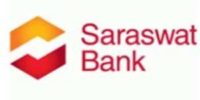Wipro WILP Interview Questions and Answers | Wipro WILP Business Discussion Round Questions | Wipro WILP Technical Interview Questions and Answers | Wipro WILP Interview Questions | WIPRO Work Integrated Learning Program Interview Questions
Wipro WILP Interview Questions and Answers | Wipro WILP Interview Process: Are you getting nervous about your impending interview with the WIPRO Work Integrated Learning Program? Every candidate dreads the last stage of the hiring process, which will put his or her knowledge and talents to the test. If you prepare for the questions ahead of time, you can earn full marks in the interview round. In this essay, we will go over some of the possible interview questions. The interview was standard, including questions on the applicant’s educational history and projects completed while in college. Because the competition is so severe, only a thorough preparation strategy can improve candidates’ chances of selection. We’ll go over some interview preparation strategies to assist you to prepare for your interview. Here you may get the Upcoming Interview Questions
| WIPRO Work Integrated Learning Program Syllabus 2023 | Wipro WILP Aptitude Questions and Answers 2023 |
| Wipro WILP Salary Structure 2023 | |
WIPRO Work Integrated Learning Program Interview Preparation
Read the exam pattern and curriculum thoroughly before beginning your preparation. To avoid disruptions, gather all necessary books and study materials as soon as feasible. To get more private jobs, click here
- Make short and succinct notes while preparing to prevent spending too much time on revising.
- Start by reading the syllabus and working on sample papers and practice examinations.
- Develop a daily reading habit and practice your grammar for the English language section to improve your vocabulary.
- Determine your weak points and work on them before the exam so you don’t stress.
How to Crack WIPRO WILP Interview Round
- Give a Firm Handshake
- Take Control of Your Slouching Back and Fidgety Hands!
- Believe in Yourself
- Do your research at the bank.
- Be respectful to the interviewer.
- Thank you for conducting the interview.
| Notification Details | |||||
|---|---|---|---|---|---|
| Recruiter | WIPRO | ||||
| Designation | Work Integrated Learning Program | ||||
| Official Website | http://wipro.com | ||||
| Join our Telegram | |||||
Wipro WILP Technical Interview Questions for Freshers
Wipro WILP DBMS Technical Questions
- What exactly is a database?
- What does normalization in DBMS accomplish?
- What is the DBMS is BCNF?
- What various SQL join types are there?
- What does the term “ACID properties in DBMS” mean?
- What is the purpose of the DROP command, and what distinguishes it from the DELETE, TRUNCATE, and DROP commands?
- What distinguishes UNION from UNION ALL in particular?
- RDBMS: What Is It?
- What do the RDBMS terms indexing and clustering mean? Why did we use?
- What are the primary distinctions between the Unique Key and the Primary Key?
Wipro WILP Technical Questions on Operating Systems
- What is the fundamental goal of an operating system?
- What benefits do multiprocessor systems offer?
- Virtual memory: What is it?
- Give an overview of FCFS.
- What is the fundamental purpose of paging?
- Give a Process State illustration.
- What is the purpose of multiprogramming?
- Give some benefits of multithreaded programming.
- What does an I/ O status information serve?
- Describe caching.
Wipro WILP OOPs Technical Questions
- What is a class?
- What is an Object?
- Explain the term constructor?
- What are the various types of constructors?
- What is dynamic or run time polymorphism?
- What is function overloading?
- What is the use of finalize method?
- What is Polymorphism?
- What is Inheritance?
- What is the main difference between overloading and overriding?
Miscellaneous
- Introduce Yourself
- What is static and dynamic Binding?
- What is HTML?
- What is Cloud computing?
- What is IOT?
- What are the types of join and explain each?
- What is the difference between DELETE and TRUNCATE commands?
- Write code to check a String is palindrome or not?
- What is the use of a span tag? Give one example.
- What is the difference between new and override?
- What is a primary key?
- What is big data?
Wipro WILP HR Interview Round
- Introduce yourself
- Walk me through your resume.
- Tell us about your education and family background.
- What did you do after graduation?
- Is this your first interview? What are the other exams you gave recently?
- How did you hear about this position?
- Why do you want to work at this company?
- Why do you want this job?
- Why should we hire you?
- What can you bring to the company?
- What are your greatest strengths?
- What do you consider to be your weaknesses?
- What is your greatest professional achievement?
- Tell me about a challenge or conflict you’ve faced at work, and how you dealt with it.
- How many tennis balls can you fit into a limousine?
- How do you like to be managed?
- Do you consider yourself successful?
Wipro WILP Technical Interview Questions and Answers
Wipro WILP Interview Questions For Freshers With Answers
Kindly introduce yourself to us and tell us a little bit about yourself.
- The majority of interviews start off like this.
- This question is designed to assess your ability to communicate, your level of self-assurance, and how you present yourself.
- You can prepare a customized response and discuss your educational background, accomplishments, skills, family history, etc. with the interviewer.
- The introduction should be brief and engaging, but you should avoid repeating information from your resume.
- In fact, you can quietly bring up your skills that somehow align with the job description in the conversation.
Describe yourself in one word
- This is a straightforward but difficult question.
- Your interviewer anticipates that you will be impulsive.
- You could characterize yourself as rational, flexible, curious, well-balanced, determined, etc.
- Whatever quality you choose, be prepared to discuss it with the interviewer.
- You can support your argument with a real-world example as well.
Tell us about your Advantages and Disadvantages
- One of the difficult but frequently asked questions in newer interview situations is this one.
- Your suitability for the position being offered and your capacity to function under the challenging circumstances you might encounter on a daily basis will be evaluated during the interview.
- You must therefore exercise extreme caution when responding to this question. When describing your strengths, concentrate on the traits needed for the position.
- One or more of your strengths could be your in-depth knowledge of a subject, your aptitude for learning, your time management skills, your leadership abilities, or your sense of teamwork.
Everyone has one or more weaknesses. So it won’t be proper to claim that you have no weaknesses when asked about them in an interview. It can come off as cocky. Therefore, when asked about a weakness, pick one that won’t prevent you from receiving the job.
Examples of appropriate responses include your aversion to sweets or your fear of insects. However, be sure to let the interviewer know if you chance to discuss any weaknesses in your personality or attitude and that you are attempting to overcome them.
What drew you to this position and why did you apply for it?
- You must thoroughly review the job description in order to respond to this question.
- Explain your interest in the position and how your skill set complements the required ones.
What are your hobbies?
- This inquiry is an attempt by the interviewer to assess your personality.
- You’re welcome to respond in a unique way.
- Share any interests you may have in hobbies.
You may list anything that genuinely interests you, such as drawing, writing creatively, coloring, reading about your role model, or learning a new language. However, it is advisable to make sure that your stated pastime does not conflict with your professional obligations.
What are your long-term objectives OR where do you see yourself in five years?
- From the list of challenging interview questions for freshers, this one is no exception.
- The interviewers want to know about your future goals at this point.
- The best strategy for answering this question is to outline your upbeat future goals and how your current position might support you in reaching them.
- For instance, if you want to advance in the marketing field, try to persuade the interviewers that your current position will provide you with the abilities you need.
Why would you like to work for this organization?
- This query has a very specific goal in mind.
- How much you know about the company is something the interviewer is interested in.
- Therefore, it is best to do thorough research on the company.
- Recognize the company’s advantages, and emphasize them in your response by describing how they can advance your career.
Do you know who our main competitors are?
- This inquiry also calls for corporate research.
- You must be familiar with the industry in which the business operates and have some knowledge of its rivals and similarly situated businesses that provide top-notch services.
***BEST OFF LUCK***
We hope our article is informative. To stay ahead of the ever-increasing competition, you are strongly encouraged to download the previous year’s papers and start practicing. By solving these papers you will increase your speed and accuracy. For more information check Naukrimessenger.com website for exam patterns, syllabi, Results, cut-off marks, answer keys, best books, and more to help you crack your exam preparation. You can also take advantage of amazing Job offers to improve your preparation volume by joining in Telegram Channel page!!!
| Important Details |
|---|



